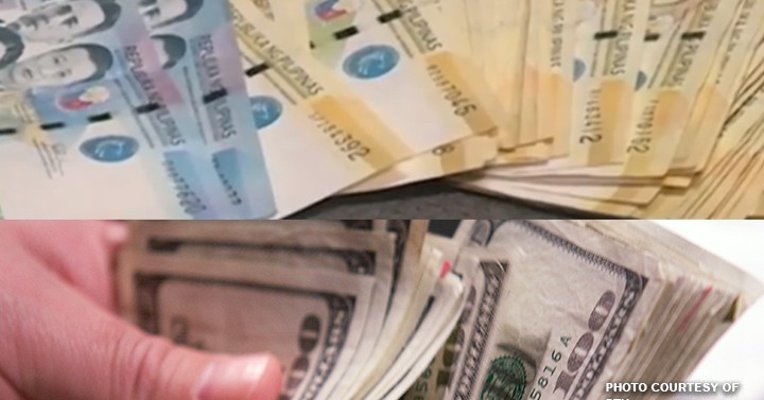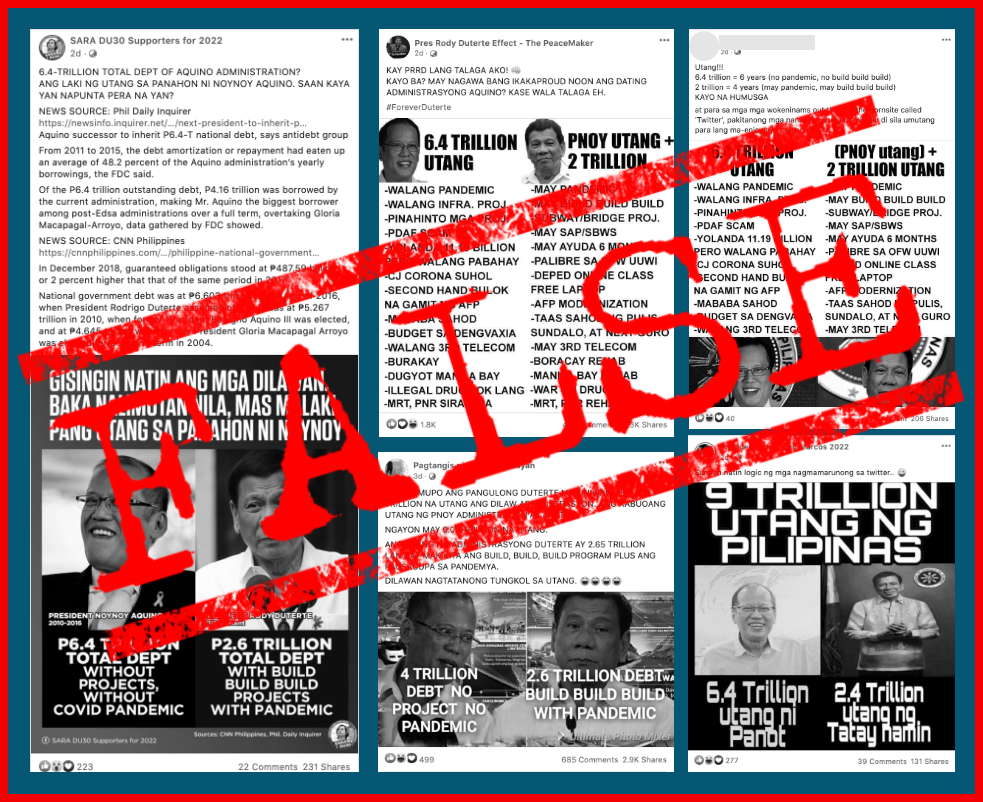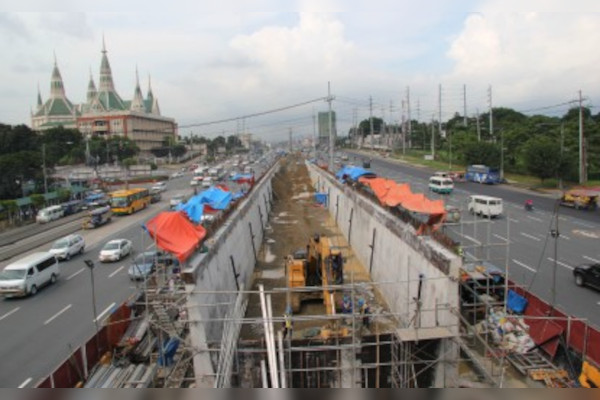When a candidate promises to build more infrastructure and provide funds for livelihood and small businesses if elected, he or she must tell voters where he or she would get the money for these.
With the country’s debt stock expected to balloon to an all-time high of P13.41 trillion this year, from P11.73 trillion last year, government spending has to be optimized. If it is to manage its finances well, it can no longer afford to distribute dole-outs such as cash assistance like the Social Amelioration Program for poor families.
The government has sustained a budget deficit, reported at P128.70 billion in November 2021, largely because of the lockdowns due to the coronavirus diseases 2019 (COVID-19) pandemic that limited business operations, forcing many small enterprises to shut down.
Faced with a huge debt to pay and reduced revenue collections, the economy is indeed in bad shape. While infrastructure and small businesses are important to resuscitate the economy, public funding for these endeavors is limited. And the COVID-19 pandemic still rages, with no sign of going away in the near future despite having a majority of the population getting fully vaccinated.
This is probably the biggest challenge that will confront whoever gets elected to succeed President Rodrigo Duterte.
Judicious spending is called for. Austerity measures must be in place not only in all government offices but also in households, particularly when the option adopted to raise money is through taxes. We all know that any increase in taxes in whatever product or sector creates a domino effect that pushes up prices of consumer products and services.
As it has been said over and over again, the upcoming elections will be like no other in the country’s history because of the pandemic. It’s not just the conduct of campaigning that will change. Voters must also be more discerning and thorough in scrutinizing the candidates to elect into office from the president down to the last town councilor.
The new set of leaders will have a lot of fixing up to do, from the nearly crippled economy to the nation’s deteriorating moral values. Hence, we need to make sure that the candidates we choose are committed to serve the public and not be the ones to be served once elected.
Candidates, be they for national or local positions, presenting a long list of campaign promises, including projects that require huge funding, must identify the money sources for those. Otherwise, they are just pulling our legs to get our votes. This must be a red flag for promises that will remain just that, promises, once they win.
From the presidential contenders, we should demand how they will handle the country’s ballooning debt and if they will follow the exiting president’s borrowing binge and be able to fund “legacy” projects.
This year’s national government budget of P5.02 trillion is 11.5% higher than last year’s P4.5 trillion, but due to debt payments that will eat up more than P1 trillion, spending will be tight.
The statement of Sen. Emmanuel “Manny” Pacquiao in one of his recent interviews that he hopes to see a Philippines that is “self-sufficient” and free from foreign debt in his presidency is but a dream.
Most, if not all, of the country’s previous presidents promised to plug tax leakages and collect more, and yet the problems remain.
Manila Mayor Francisco “Isko Moreno” Domagoso is promising to continue the Duterte administration’s multitrillion-peso Build, Build, Build infrastructure program and construct more hospitals and health facilities, and tap private-sector funding for these.
Sen. Panfilo “Ping” Lacson said he will boost public-private partnerships for infrastructure projects while Vice President Maria Leonor “Leni” Robredo promises to prioritize public works projects such as water facilities and public transport outside Metro Manila.
Labor leader Leodegario “Ka Leody” De Guzman said he plans to reallocate more funds to hospitals. Pacquiao said he will extend a planned railway on the southern island of Mindanao.
More than these promises, the contenders need to flesh out their plans and assure the public that their projects will contribute to economic recovery, especially when these would be funded by more borrowings and make life less difficult for a majority of the population.
It is equally important to have a thorough auditing of the trillions of pesos that were borrowed for the COVID-19 response to make sure that these did not end up in the pockets of corrupt officials and their cohorts.
The views in this column are those of the author and do not necessarily reflect the views of VERA Files.
This column also appeared in The Manila Times.


